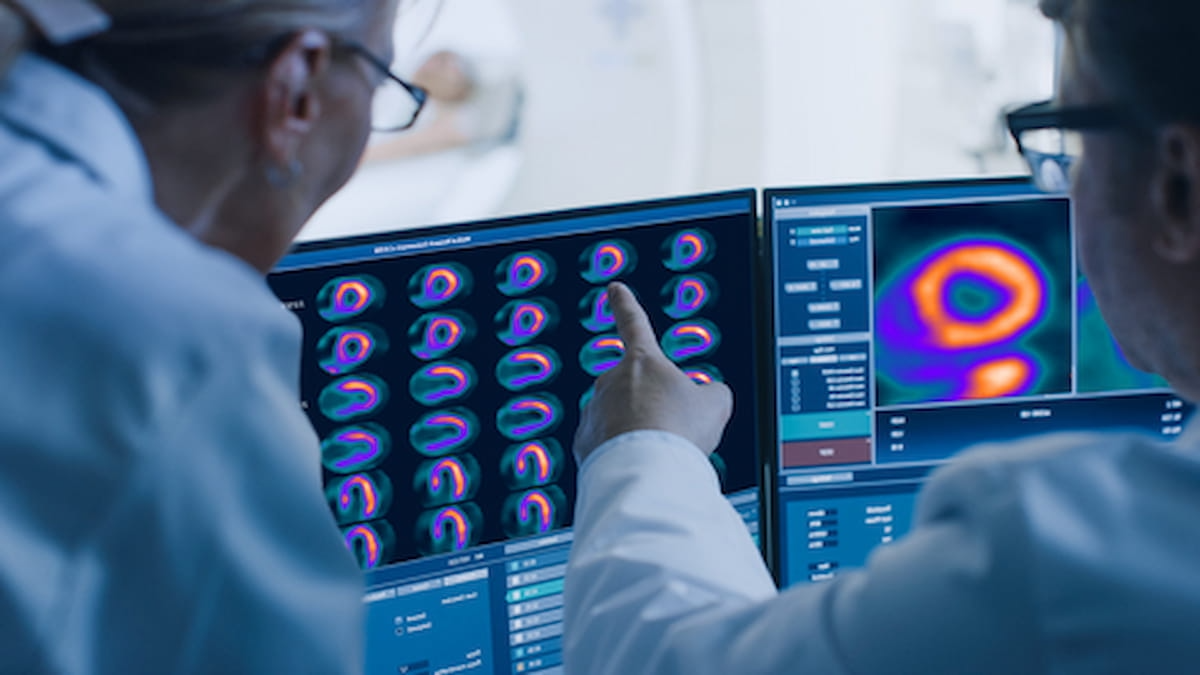Radiology ‘Game-Changer’: FDA Approves PET Agent for Enhanced Detection of Coronary Artery Disease
Offering higher diagnostic efficacy than SPECT imaging for coronary artery disease (CAD) detection, the PET myocardial perfusion imaging agent Flyrcado™ (flurpiridaz F 18, GE HealthCare) provides unit dose availability and effectiveness in imaging patients with high BMI.
The Food and Drug Administration (FDA) has approved Flyrcado™ (flurpiridaz F 18, GE HealthCare), a positron emission tomography (PET) myocardial perfusion imaging (MPI) agent that may enhance the detection of coronary artery disease (CAD) and facilitate expanded access to PET imaging for patients.
In addition to providing higher diagnostic efficacy for CAD than single-photon emission computed tomography (SPECT), Flyrcado has a half-life of 109 minutes, which is over 10 times higher than that of other cardiac PET radiotracers, according to GE HealthCare. The company noted the availability of Flyrcado in unit doses that can be manufactured at off-site pharmacies may significantly expand patient access to PET MPI technology.
“There are new frontiers for cardiac PET that this tracer can achieve; it can be ordered as a unit dose, and it offers the flexibility to perform exercise stress testing. We expect new imaging centers to be able to offer cardiac PET to their patients, making it more convenient to access PET MPI and providing a meaningful impact for clinicians and their patients,” noted Mouaz Al-Mallah, M.D., MSc, MASNC, the director of cardiac PET at Houston Methodist Hospital and the immediate past president of the American Society of Nuclear Cardiology.
In addition to providing higher diagnostic efficacy for CAD than single-photon emission computed tomography (SPECT), the newly FDA-approved PET radiotracer Flyrcado has a half-life of 109 minutes, which is over 10 times higher than that of other cardiac PET radiotracers, according to GE HealthCare. (Image courtesy of GE HealthCare.)

In a prior interview at the 2023 Society for Nuclear Medicine and Molecular Imaging (SNMMI) conference, Krishna Patel, M.D., noted research findings that shows the advantages of Flyrcado for diagnosing CAD in patients with high body mass index (BMI). For obese patients, Flyrcado demonstrated higher sensitivity rates (76.9 percent versus 69.2 percent) and specificity rates (66.9 percent versus 61.9 percent) in comparison to 99mTc-SPECT.
Dr. Patel, the director of cardiac PET at Mount Sinai Morningside in New York City, said study data has also shown that Flyrcado reduces radiation exposure by one-third (6.2 mSv PET) in comparison to tetrofosmin SPECT (9.9 mSv) and by one-half in comparison to sestamibi SPECT (12.4 mSv).
Jamshid Maddahi, M.D., FACC, MASNC, the principal investigator of the Flyrcado clinical trials, said the PET MPI radiotracer is one of the most significant advances in the past few decades in nuclear cardiology.
“I am excited for this new radiotracer and its potential impact, as a game changer, for diagnosing the disease with the highest mortality rate in the world,” maintained Dr. Maddahi, a clinical professor of medicine (cardiology) and molecular and medical pharmacology (nuclear medicine) at the UCLA School of Medicine.
Newsletter
Stay at the forefront of radiology with the Diagnostic Imaging newsletter, delivering the latest news, clinical insights, and imaging advancements for today’s radiologists.
The Reading Room Podcast: Current Perspectives on the Updated Appropriate Use Criteria for Brain PET
March 18th 2025In a new podcast, Satoshi Minoshima, M.D., Ph.D., and James Williams, Ph.D., share their insights on the recently updated appropriate use criteria for amyloid PET and tau PET in patients with mild cognitive impairment.
New PET Study Links Higher Education Level to Speed of Tau Accumulation with Alzheimer’s Disease
July 8th 2025For patients with amyloid β (Aβ)-positive findings on positron emission tomography, higher educational attainment was associated with accelerated accumulation and spread of tau, according to new research.